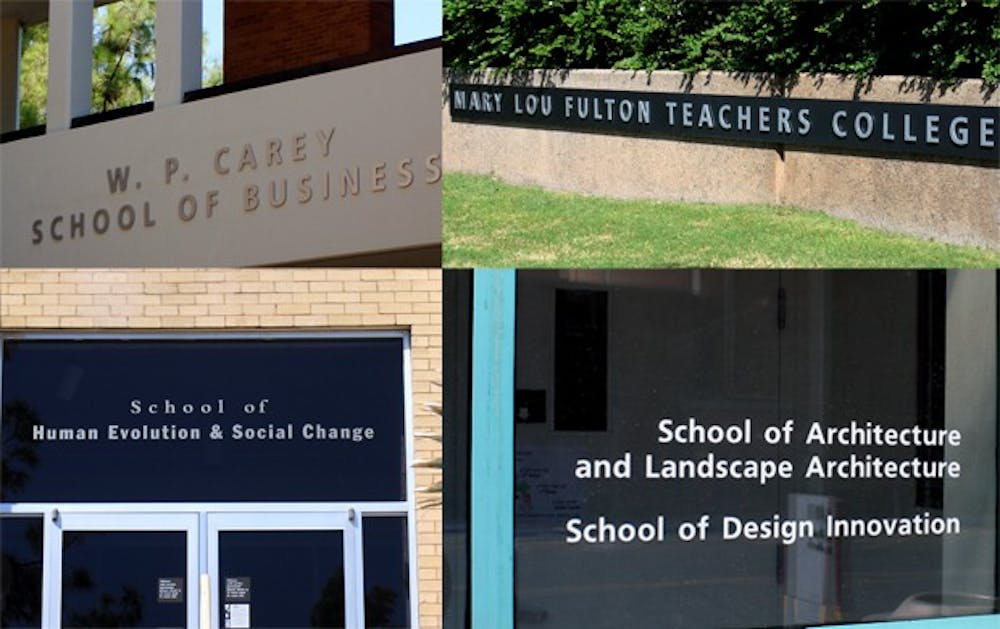
What’s your major? And what do you want to do with it in 10 years?
Don’t be deceived – this seemingly open-ended question is based on a set of strict assumptions, and there are only a handful of correct answers. We’re supposed to pick a major straight out of high school, where our scope of experience is limited to math, science, English, history and a few other extracurricular activities. But what do 18-year-olds know about women’s studies or industrial design?
We’re taught that what we study here dictates the next 10 years of our lives, that there is a straight-line path starting the first day of freshman year to graduation to our jobs and our ultimate economic situations, and if we stray from that path we need to stop dilly-dallying and wasting precious time.
Meet Tyler Eltringham, a junior studying geography who has changed his major 11 times.
“I needed to find something I would make money with, something I could be successful in, and something I was going to enjoy. And I couldn’t do it. I couldn’t find something that was the trifecta,” he says. It took him awhile to figure that out, and each time the guilt piled on.
“For college kids, time is the most valuable resource on the planet. It is finite, strictly finite, and you can only take so many classes in four years. Changing your major is demoralizing, and it puts you in an even worse position than before. Now, not only do you not know what you want to do, but you’re also a semester behind.”
Moving from sustainability to industrial design to earth and space exploration, and then eight other majors, Tyler has made a major realization.
“The major is not what matters. Me is what matters,” he says. “These classes are teaching me skills and concepts that are going to help me grow. And my personal growth is going to be the deciding factor.”
With less of an emphasis on the title, and more of an emphasis on broadening his perspectives and taking classes for the sake of learning, Tyler felt the pressure slide off his shoulders. When you stop looking at college as a checkpoint on the path to a job, and instead see it as a wealth of opportunities to explore anything you want to, it’s harder to make a wrong decision.
Eventually, Tyler chose geography, which he describes as “the great unifier, every major rolled into one.” It’s a field that is relevant to everything and anything, broad enough to satisfy his intellectual curiosity and his passion for learning about the world. But most importantly, it represents a choice that wasn’t meant to satisfy anyone but himself.
Angela Abolhassani, a sophomore at Barrett, The Honors College, spent much of her freshman year deciding between her two declared majors - conservation biology and creative writing.
“My more organic interest was always English, and then the more acceptable, direction-oriented interest was biology. And it wasn’t so much an interest as being good at it, or at least that was why I would choose it as a field of study.”
Conservation biology, with the plan of working with small fishing villages on sustainable ways of fishing, became the story she sold to college and scholarship boards. Of course, there was pressure from her parents as well.
“My parents were very B.S., B.S., B.S. If you come out of your undergrad without a B.S., what are you going to do with that? You’ve learned nothing,” she says. After attempting to straddle the two obviously disparate majors, Angela decided it was time to make a choice.
“I’ve always felt this pull in opposite directions, I had two hemispheres of my brain that were always warring, and to integrate them felt false; it felt insincere.” Unwilling to compromise her focus and spread herself across the two disciplines, she settled on literature, the independent interest she’s cultivated since childhood.
“Literature being the organic interest that I had was so important to me personally, and this was the time to let who I am personally manifest itself in my professional plans,” she says. “I’m still wondering about it, still questioning it, but it’s in line with the more specified story I’m trying to create. And the most important thing about that story is that you don’t have to be faithful to anyone but yourself.”
Why does it take so long to acknowledge a doctrine so intuitive?
“A huge part of it was knowing that it’s not only what you’re good at, but what lifts your heart. And it’s such an easy truth to accept,” Abolhassani says. “If you really accept it in your heart, it’s an easy thing to understand.”
Reach the reporter at tycai@asu.edu




